The Nexus staff’s 21 book recommendations for 2021
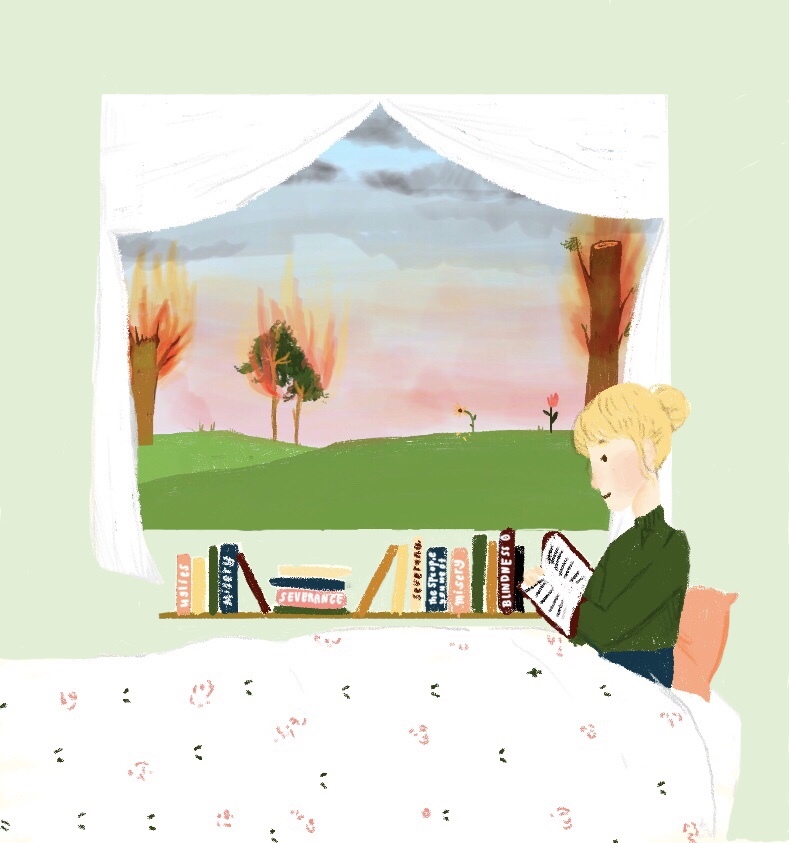
Whether to escape, better understand or cope with our chaotic reality, books are especially necessary in 2021. For our first issue of the year, The Nexus staff has put together 21 book recommendations for 2021, with books to immerse you in the wonderful land of Oz, the increasingly relevant prose of James Baldwin or even the apocalypse itself. From biographies to plays to young adult novels, these 21 books may be the perfect way to pass the time in what is—hopefully—the final stretch of our isolation.

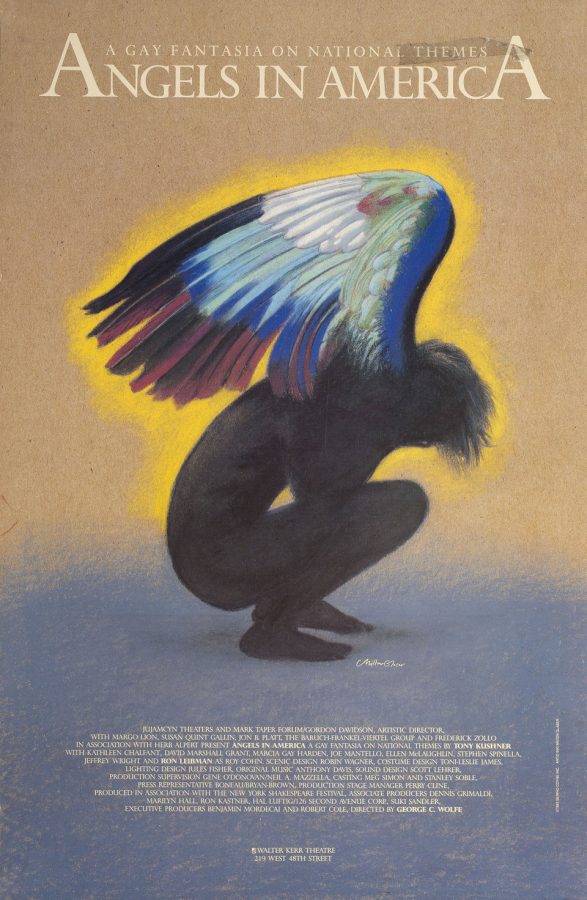
Angels in America: A Gay Fantasia on National Themes by Tony Kushner
Genre: Drama
Content Warnings: Some drug use
Length: 294
Even if you don’t like many plays, you’ll like this one. Focusing on the gay community in New York City at the height of the AIDS epidemic in the ’80s, Kushner dramatizes a world that shares the same tragedy, surrealism, and polarization as our current one. With his myriad of characters—from Black drag queen nurses to worried Mormon mothers to Roy Cohn, a real closeted-gay corrupt conservative lawyer (with Donald Trump as one of his many clients from the ’80s) —Kushner beautifully portrays the deeply rooted divides in America across boundaries of religion, race, gender, and sexuality, culminating in a hopeful declaration of humanity’s power to ultimately come together and heal during times of tragedy. The play holds the kind of hope for the future that we all need right now—while also being so amusingly surreal and hilarious. At some points wonderfully confusing like a vivid dream, at some points putting into writing what seems to be perfect descriptions of the fear and loss and loneliness that accompanies epidemics, Kushner writes a play that encompasses the huge mosaic of American culture and, most importantly, how it ultimately endures tragedy. This play is complicated and nuanced, so if you read it now, you’ll have enough of an understanding to enjoy it in its full glory when, in a hopefully not-so-distant future, we can all go to the theater and see it performed live.

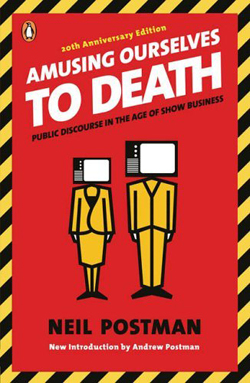
Amusing Ourselves to Death: Public Discourse in the Age of Show Business by Neil Postman
Genre: Non-Fiction
Content Warnings: None
Length: 163 pages
The concept of this book, a social commentary from 1985 about the effect of television on human thinking and discourse, seems laughable in the context of 2021. Postman worries about the speed and, in turn, shallowness at which information is distributed on TV; imagine his horror if he were alive to scroll through TikTok. Yet, this is precisely why this book is important to read in 2021: We must ask more questions of our technology, of the way we consume information. Postman’s son, Andrew Postman, summarizes some of these questions in his introduction to the book, written in 2005, asserting that we must ask of our technologies: “Do they free us or imprison us? Do they improve or degrade democracy? Do they make our leaders more accountable or less so? Our system more transparent or less so? Do they make us better citizens or better consumers?” Even in 2005, Postman’s son had no idea what was in store for the next fifteen years of media, but he and his father are still eerily prophetic about how technology shapes—or controls—human thought and action. Though it may not be an option for us to abandon technology altogether, we all have the choice of controlling the mediums from which we get information and Postman’s book offers the perfect framework for considering which of these mediums enrich our lives and which of them exist for the sole purpose of amusing ourselves to death.

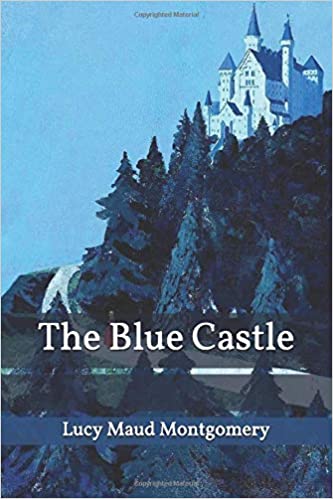
The Blue Castle by Lucy Maud Montgomery
Genre: Romance
Content Warnings: None
Length: 310
There are books meant to be read curled up in the lazy embrace of summer vacation, books that thrive in the cold air of an English Lit classroom discussion, and books that you stay up late to finish bingeing. The Blue Castle is none of the above, and therein lies the majority of its charm.
Written by Lucy Maud Montgomery, the author of the Anne of Green Gables series, The Blue Castle is a relaxing break from the curated dumpster fire that makes up much of our current headlines. Vivid prose and an easy plotline make The Blue Castle an easy read, one that lacks the need for too much hard thinking or analysis. Set in picturesque Canada during the 1900s, with a heroine who grows into her own confidence and the gentle doom of a fatal heart condition diagnosis, the easy rise and fall of romance is a distraction from doom scrolling.
For those of us looking for a break, a lighthearted hike through the misty woods of Mistiwas would be somewhat lighter on the eyes and significantly lighter on mental stability.

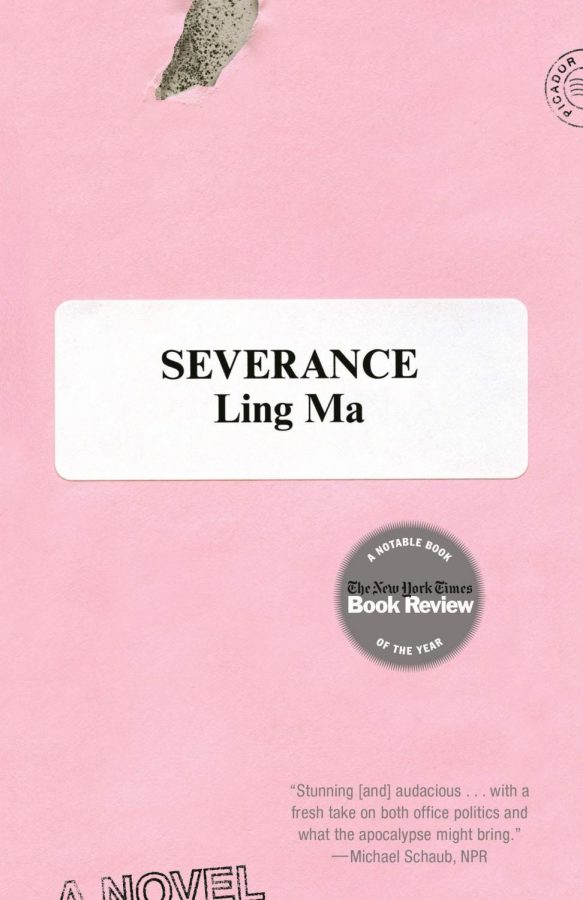
Severance by Ling Ma
Genre: Literary fiction
Content Warnings: Death, some drug use, childbirth
Length: 304 pages
In a year that featured extended lockdowns and the grey of quarantine, Ling Ma’s apocalyptic novel Severance is perhaps more relevant now than ever. Ma’s depiction of mass hysteria and the tentative tension of group dynamics that comes with a pandemic draw the parallel between fiction and reality thin, even as it offers an escape from the sofa and the boxes of Zoom.
Unlike many other apocalypse novels however, Ma’s use of the disaster trope brings to life the minute conflict within societal collapse. With a plot set near to home in New York City and revolving around choices that must be made but really shouldn’t have to be, Severance is as comforting as it is all too real in our current reality. Themes of isolation are interwoven with the push and pull of family, which are revisited in flashbacks and the main character Candace’s musings on the diaspora experience and her own upbringing as a Chinese-American.
For readers hoping for a timely distraction, Severance is an interesting peek into a parallel universe that is perhaps closer than can be hoped for.

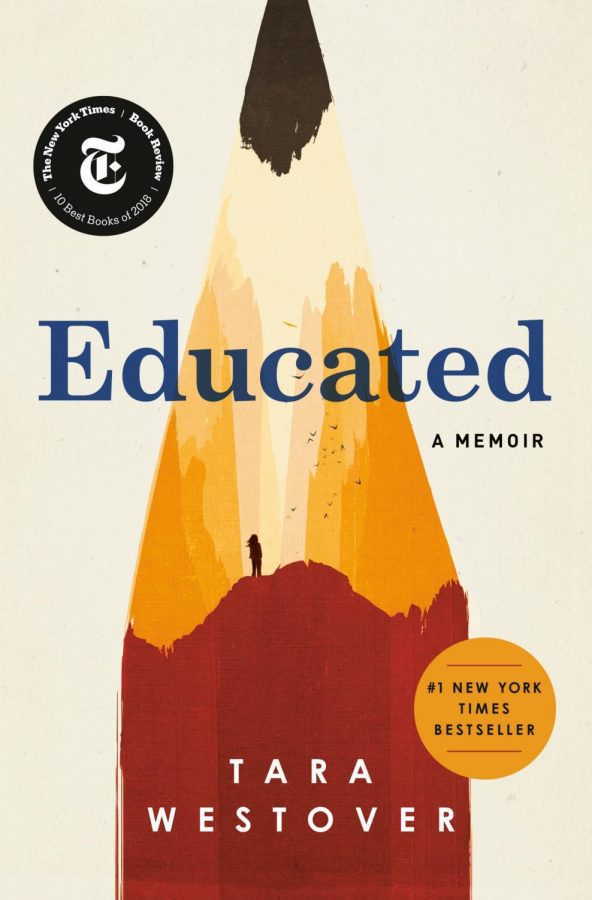
Educated by Tara Westover
Genre: Autobiography
Content Warnings: Abuse
Length: 329 pages
With our entire education systems reduced to computer screens over the past year, it’s easy for current students and educators to lose sight of the meaning and importance of education. Tara Westover’s memoir reminds us of that. She chronicles her journey of leaving her abusive family of survivalist Mormons at age 17 to pursue an education—a monumental decision by her as she was raised by parents who don’t trust any “establishment,” not the medical establishment nor the educational one. Westover didn’t know any math or grammar until her teen years, she didn’t know about the Holocaust or Civil Rights Movement until she was in college. Her education helps her view herself and her family more clearly; it helps her form a relationship with them without living in the secluded Idaho mountains. Even though getting up every morning to stare at Zoom calls for hours seems like a chore for us, Westover’s story is a reminder that education is an immense privilege, one that helps us grow and improve our lives.


The Girl with the Dragon Tattoo by Stieg Larsson
Genre: Crime/Thriller
Content Warnings: Sexual assault, violence, drug use
Length: 644 pages
If you’re anything like me, who, even after hours of Zoom meetings and work on my computer, still gets sucked into addicting Netflix series in my free time, these books are the perfect, equally addicting replacement to give your eyes a break from screens and your mind a break from the chaos of our present. The Girl With the Dragon Tattoo is a Swedish crime thriller from 2006, the first in the three-book “Millennium” series. It focuses on a journalist who has fallen from grace after publishing a libelous story and a—for lack of a better word—badass computer-hacker girl who come together to investigate the disappearance of a daughter from a well-known Swedish corporate family. Basically, you’ll find yourself sucked into the mystery of this missing girl, unable to put the book down until you know what happened to her. It’s the perfect long piece of escapism for a crazy world and time period that demands the occasional escape to protect our mental health.

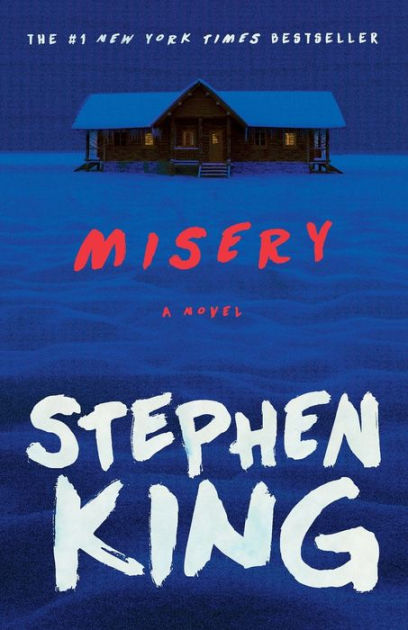
Misery by Stephen King
Genre: Psychological Horror
Content Warnings: Violence, gore
Length: 420 pages
In a time when we’re all stuck at home, yearning to go outside and be with friends, it helps to be reminded that things could be worse. For example, you could be a once-successful author trapped in the house of your violent, psychotic fan who won’t let you leave until you write another installment of her favorite book series. Such is the plight that Paul Sheldon faces in Misery. He’s stuck inside, just like us—but under very different circumstances, obviously.
Follow along as Paul tries to keep his captor happy and looks for a way to escape with all his limbs intact. Just as in most Stephen King novels, success is not guaranteed. And like most Stephen King novels, the descriptions are quite graphic at times. Reading this book may not be a good idea if you’re easily scared. But if you can stomach it, Misery is a modern-day Scheherazade story of anticipation, chills, and lessons that maybe it’s not so bad to voluntarily stay at home after all.

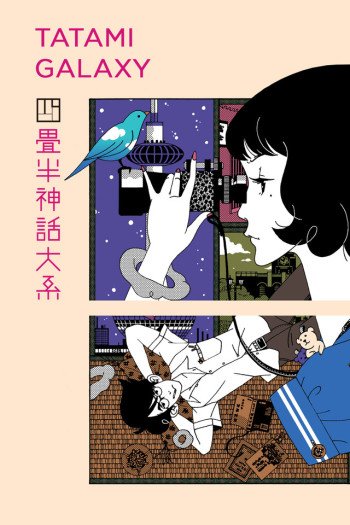
The Tatami Galaxy by Tomihiko Morimi
Genre: Dark humor / Slice of life
Content Warnings: None
Length: 188 pages
Looking back on his final years of school, a student feels cheated of his perfect campus life. Sound familiar?
If you answered yes, you are of course not alone. As we watch senior activities, dances and graduations slip by before our eyes, it’s natural to feel like we’re missing out. Even without the pandemic interfering, it’s likely that we all have our regrets, things we wish we could have done better.
In Yojohan Shinwa Taikei, known in English as The Tatami Galaxy, one ill-directioned Kyoto University student gets a chance to redo his past by going through parallel universes. Attempting to find his ideal “rose-colored” social life, the protagonist resets to his freshman year and joins a different campus club whenever he becomes disillusioned. Strangely (or maybe not), he ends up disillusioned no matter what choices he makes.
This novel explores hope, happiness, friendship, and the black thread of fate. Four parallel chapters go by quickly, and by the end you’ll have reached an epiphany that will change how you view the past and how you approach the future.

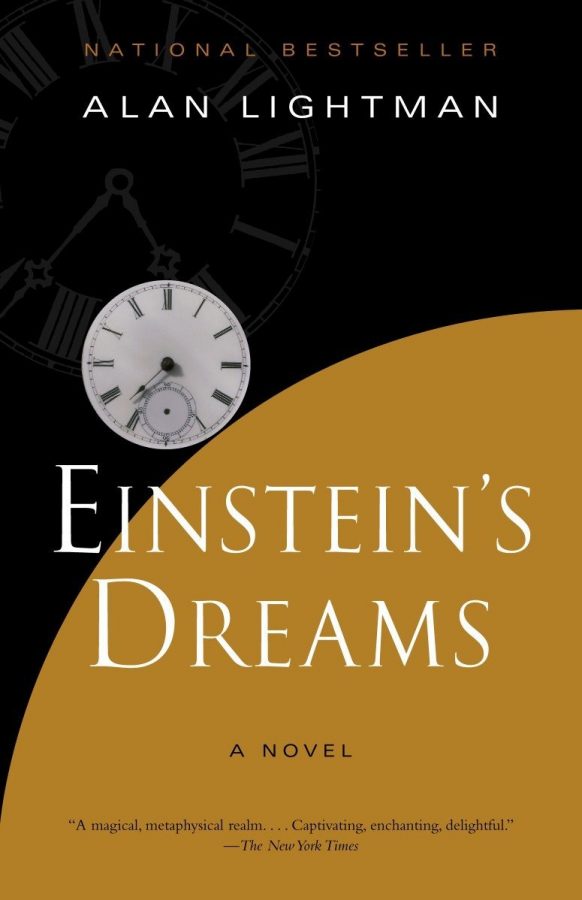
Einstein’s Dreams by Alan Lightman
Genre: Short stories
Content Warnings: None
Length: 192 pages
The infinite nature of time and the universe can be incomprehensible to our finite minds. Especially now that we spend our days at home, our universes seem to have shrunk to the volume of our rooms and the area of our computer screens. But if time wasn’t linear and the world wasn’t so law-abiding, things might be different.
Einstein’s Dreams is a collection of short stories about how the father of modern physics may have seen time in his dreams—not as what it is, but as what it could be. In these glimpses into alternate worlds, time takes on a surreal, fluidlike state. It’s tangible, or circular, or a bird, or nonexistent. It makes you wonder if we only view our laws of the universe as fact because they’re all we’ve ever known. It makes you wonder if there are other possibilities.
Einstein’s Dreams will take you down a rabbit hole of what-if’s. But worry not, because you don’t need to understand physics or e=mc². You’ll understand time through the feelings of the characters and the images in your mind, and as you read this book you may come to realize that although your room is small and your computer screen is smaller, perhaps feeling and imagination is all you need.

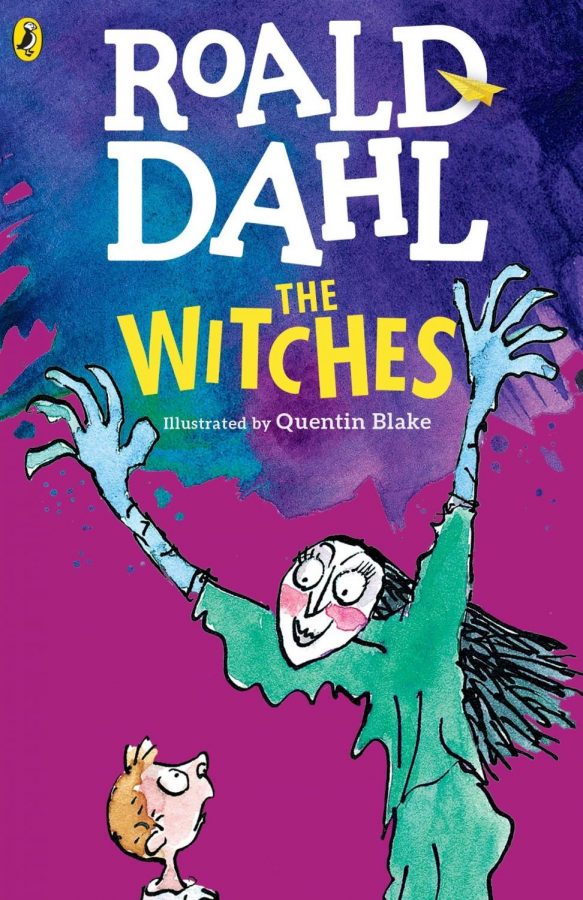
The Witches by Roald Dahl
Genre: Fantasy / Children’s literature
Content Warnings: None
Length: 244 pages
What better way to spend our last years as children than by reading children’s literature? Once you’re 18, you’ll have officially begun the overrated stage of life called adulthood, complete with taxes and responsibilities, and childlike wonder will be much further out of reach.
Contrary to popular belief, children’s books aren’t all about colorful fish or caterpillars that missed lunch. The Witches presents a rather grim suggestion that somewhere out there, perhaps even under your very nose, there is a secret society of nasty “witches” who aim to make all children disappear. Amidst this unimaginable terror, a grandma and grandson take on the task of fighting back.
As we’re on the cusp between adolescence and adulthood, we’re in a perfect spot to appreciate a good story while also understanding its messages. Enjoy this easy read with the same excitement and curiosity that you would have had if you came across this book in primary school. Ideally, by the end, you’ll also have learned something profound about the meaning of life—but that’s secondary.


Blindness by Jose Saramago
Genre: Apocalyptic fiction
Content Warnings: rape, graphic depictions of blood/human excrement and violence
Length: 288 pages
Blindness by Jose Saramago is a book about what humanity does at its lowest point. When everyone in the world starts turning blind, those infected with the condition are stuck together in an abandoned asylum. Much of the story is told from the perspective of the one woman who can still see and the horrors she witnesses as people must learn to live in horrific conditions and deal with their newfound blindness.
While reading this book, I became so engrossed in the plot and the plight of the characters, that I would wake up surprised to find myself still able to see. Despite being a challenging read in both content and language, the messages presented about humanity echo closely to the pandemic-ridden world we live in today. In the novel, we see people becoming the worst of themselves, and perhaps we see that same occurrence in our own lives. As we continue to face all of the challenges presented by COVID-19 and the government, Blindness serves as a horrifying reminder of what we can become. The book’s positive ending will hopefully remind us that we will overcome this pandemic, despite the horrors that are occurring along the way.

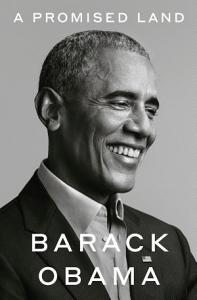
A Promised Land by Barack Obama
Genre: Autobiography
Content Warnings: None
Length: 768 pages
Barack Obama’s A Promised Land takes us through his initial political campaign to a reflection on his first term in office. The book is profoundly introspective—the former president reflects on his decisions about the economic crisis, foreign policy and healthcare reform. He writes about his commitment to reading letters from his constituents every night, as well as his careful signatures of condolence letters to the families of deceased soldiers. He shows us that his policies were driven by, and focused on, helping specific people, rather than acting as partisan power grabs.
Through his writing, he also reminds us that those involved in shaping democracy, especially at the government level, are still people with pasts, relationships and concerns. Although the book is mostly about his political career, the small tidbits about a joke one of his staffers made or the gossip between international leaders demythologize both himself and the people around him.
He writes about how his struggles in creating policy—the constant compromising, the urging from, at times, his own staff to give up, and his motivation to make change, all created obstacles to implementing his policies. He addresses his self-doubt and thought processes, while praising the people around him for keeping his motivation to improve people’s lives afloat.
Despite these difficulties, he also explains how, in the end, his policies still brought significant progress, and tells us specific stories about the lives that those policies improved. At a time when our democracy seems fragile, hopeless, and perhaps fated to collapse, A Promised Land reminds us that it is something worth fighting for.

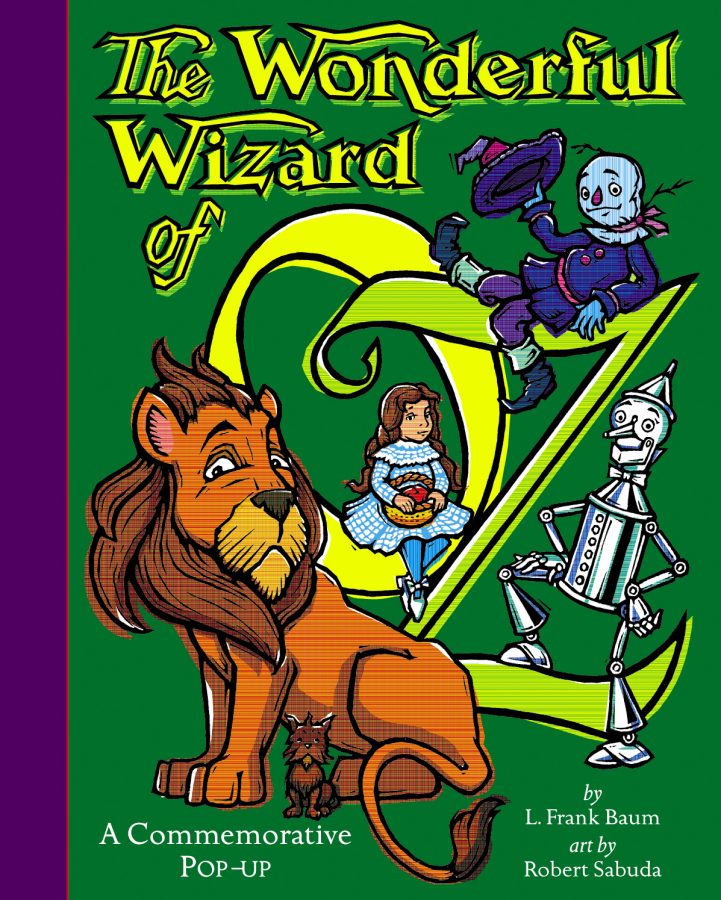
The Oz Books by L. Frank Baum
Genre: Fantasy/ Children’s Literature
Content Warnings: None
Length: 14 books
While Hollywood only made the first book by L. Frank Baum into a movie, the adventures of Dorothy and Toto and the Tinman did not end with The Wonderful Wizard of Oz, but continued on for another 13 books. In fact, other authors continued on Baum’s series after his death, but I have always preferred the original 14 books.
With all of the stress in our lives, from school to the pandemic to current events, the simple nature of these books can offer the perfect escape from reality. Just for a little while, we can flee to the land of Oz to enjoy adventures of magic and wonder, without actually having to have our houses picked up by a tornado.
With enough books to last for potentially months of reading, these stories can bring us back to our childhood for just a moment. The series is fun and whimsical, bringing a little bit of joy and magic to our lives so fraught with pandemic related instances.

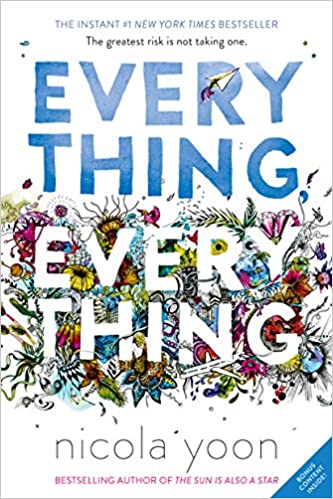
Everything Everything by Nicola Yoon
Genre: Young Adult
Content Warnings: Domestic violence, profanity, sex
Length: 310 pages
Madeline Whittier is a high school student who was born with a rare disease that prevents her from leaving her house. Much like Madeline, today’s youth, especially high schoolers have been feeling trapped and eager for an adventure. When she sees a moving truck next door and the handsome boy called Olly who comes along with it, she instantly realizes that her life will never be the same. She is willing to risk everything for love and uncovers secrets in the process. Author Nicola Yoon tells a beautiful story of love and adventure in this young adult novel, recently adapted into a movie. The drawings, charts, and journal entries, paired with the story keep the reader engaged and make this an easy read. Everything Everything perfectly captures a youthful love story without the cliches or cringy scenes. This novel is the perfect addition for anyone looking to pick up some light, whimsical reading during quarantine.

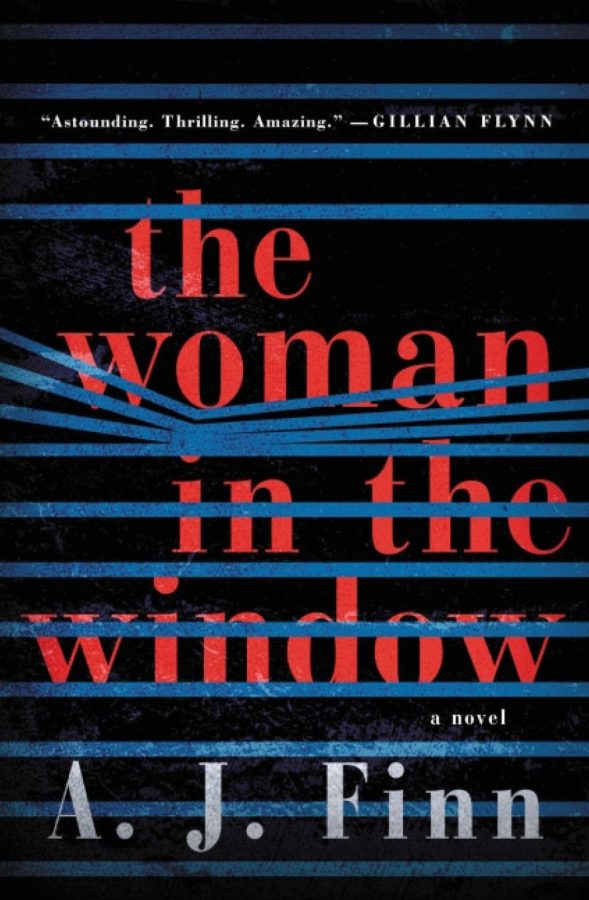
The Woman in the Window by A.J. Finn
Genre: Thriller
Content Warnings: Profanity, mentions of rape, death, violence, domestic abuse, substance abuse, sex
Length: 427 pages
Stepping out onto her front porch has become a difficult task for child psychologist Anna Fox. Much like most of the population during the pandemic, she fears going outside. Agoraphobia has limited Anna to the walls of her own home, which has made her pick up one of her favorite hobbies: people-watching. This nosiness eventually sends karma her way when she witnesses something she shouldn’t from her new neighbors, the Russells. With its many plot twists and captivating writing, this thriller will keep you turning pages, unable to put it down. For those whose New Year’s resolution, similar to mine, is to read for pleasure more often, this book will certainly be a good start.

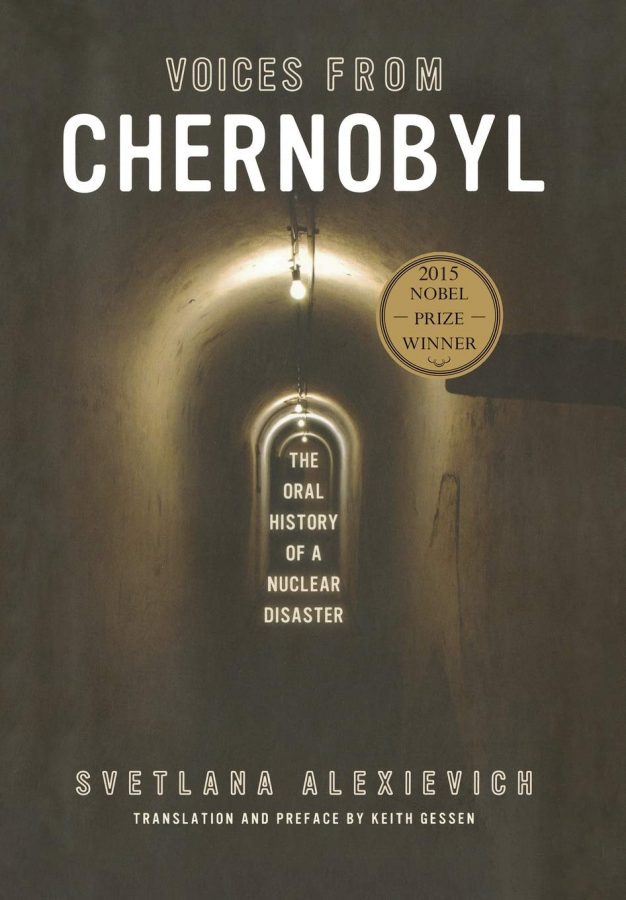
Voices from Chernobyl: The Oral History of a Nuclear Disaster by Svetlana Alexievich
Genre: An oral history
Content Warnings: Some graphic descriptions of sick bodies
Length: 240 pages
Voices from Chernobyl isn’t the first book covering the explosion of Reactor Number Four in Chernobyl, Ukraine—the world’s worst nuclear disaster to date. Voices from Chernobyl, though, remains the most authentic picture of the Chernobyl disaster—a feat achieved when the book is made up of direct transcriptions of interviews with survivors. There aren’t chapters in Voices From Chernobyl, but rather, “monologues:” a “Monologue on Why We Remember,” for example, and a “Monologue About What Can Be Talked About with the Living and the Dead.” The book is quite literally an oral history, and though it doesn’t necessarily describe in detail what happened that night of the explosion, the stories of the aftermath prove to be more worthwhile. These stories come from regular people: a psychologist, a father, a widow, many resettlers. Their thoughts on the subject are often more profound and poetic than they give themselves credit for, perhaps partially because they have become attuned to watching for shifts in the radiation-poisoned land they live on, which many chose to return to after being evacuated. The voices of Chernobyl raise questions of where home is, reflect on death and love, struggle between remembrance and yearning to forget. In the aftermath of something so disastrous, we are reminded of the small beauties of surviving, of living: “…the cuckoo is cuckooing, the magpies are chattering, roes are running,” one resettler notes. In a time that often feels like the end of the world, it’s both humbling and inspiring to see the persistence of human survival through times of disaster. If you want to read about grief, healing, and most importantly, humanity, read Voices from Chernobyl.

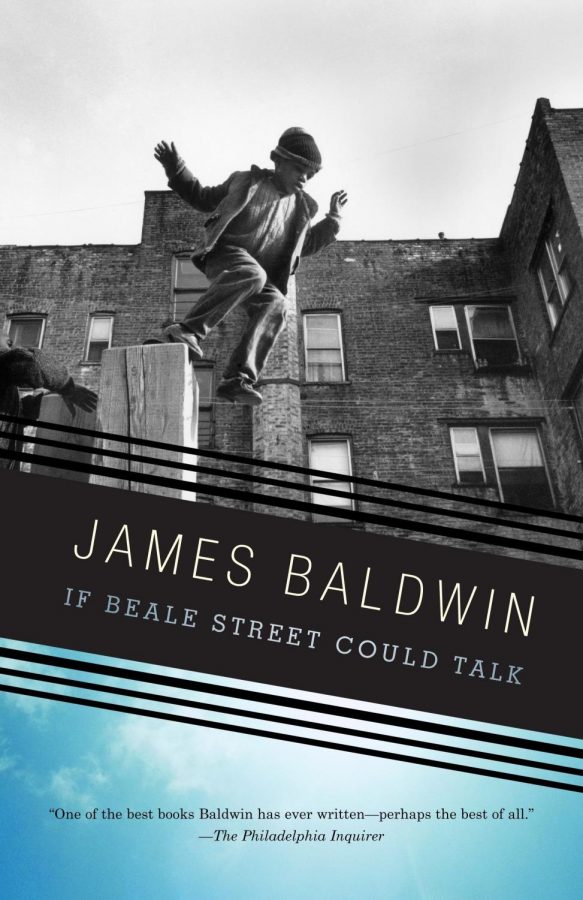
If Beale Street Could Talk by James Baldwin
Genre: Literary Fiction
Content Warnings: Sex, mentions of rape
Length: 197 pages
Set in Harlem, New York, in the 1970s, If Beale Street Could Talk is told through the eyes of a young Black woman named Tish, whose fiance (and father of her coming child), Fonny, has been wrongfully imprisoned for a crime he didn’t commit. The novel’s dealing with mass incarceration and injustice in the prison system is as relevant as ever today, with innocent men and women on death row and the first federal execution since 2003 taking place last July. Despite Fonny and Tish’s families being presented with a seemingly impossible task of freeing Fonny, they are unyielding in their efforts, and the novel carries an inexplicable undertone of hope. If Beale Street Could Talk is a story of injustice, yes, but it is also one of love, and the lengths people go to to fight for who they love. The prose is poetic, deeply honest, and moving. If Beale Street Could Talk is not a lighthearted read, but it’s well worth the time and emotional commitment.

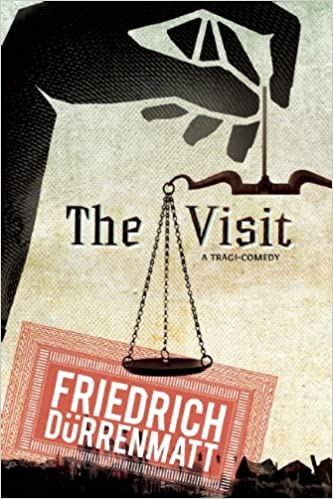
The Visit by Frederick Dürrenmatt
Genre: Drama
Content Warnings: None
Length: 120 pages
A tragi-comedy, The Visit opens in a weary, impoverished town visited by an old resident turned-billionaire, Claire Zachanassian. Claire has enough fortune to restore her hometown of Güllen, as its residents are well aware of. However, Claire sets a pretty price in exchange for her help: revenge against her former lover, now mayor-to-be Alfred Ill. The play begins with a call for the townspeople to kill Alfred in order for Güllen to receive Claire’s fortune. The Visit shows the worst of people—what happens when you mix desperation with an irresistible incentive—and explores how mob mentalities are created and justified. The play is well worth the read, as a warning of what can happen when one person holds too much power over a group of people.

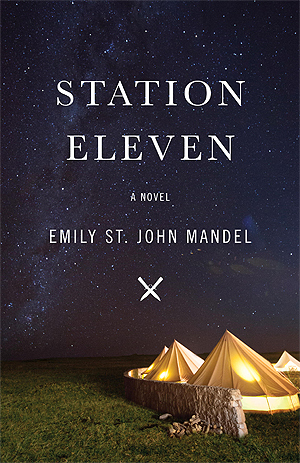
Station Eleven by Emily St. John Mandel
Genre: Science Fiction
Content Warnings: None
Book Length: 333 pages
Incredibly relevant to the events we’ve experienced in 2020 and 2021, Emily St. John Mandel’s novel Station Eleven, shares many uncanny parallels to the COVID pandemic, but also reminds us that even in the darkest times, humans must band together to preserve our culture and ensure our legacy.
Published in 2014, Mandel’s story follows a group of musicians, singers and actors travelling between ruined U.S. towns, trying to keep the memory of the arts alive as they navigate a destroyed society. The group’s purpose is to provide the people in these towns with a glimmer of hope and joy through various performances, reminding the reader of all the positives our world has to offer, even in the darkest of times.
Especially with the state of the world now, Station Eleven helps readers appreciate what we have, conveying how humanity is strongest when we band together and support each other. With all of its messages that strongly relate to our society, Station Eleven is a novel that should be on our 2021 reading lists.


The Five People You Meet in Heaven by Mitch Alborn
Genre: Philosophical fiction
Content Warnings: None
Book Length: 194 pages
The story The Five People You Meet in Heaven, by Mitch Albom, revolves around the untimely death of an amusement park ride mechanic named Eddie and his encounters with five people in heaven whom he impacted greatly during his life. Eddie felt as though he didn’t have a purpose and that he lived his entire life in vain. During his journey in the afterlife, however, Eddie meets with people from his life on Earth, and learns about human connection, sacrifice, forgiveness, the power of love, and his life’s purpose. Unbeknownst to him, Eddie touched many lives and taught people meaningful lessons. He learns that each encounter he had in his lifetime had purpose, and that his life was interconnected to the ones around him. With our current quarantine, we might feel a bit lonely, but it is important to remember that we have a meaning and purpose to fulfill, though we may not realize it. If you are looking for a heartwarming yet meaningful story, The Five People You Meet in Heaven is for you.

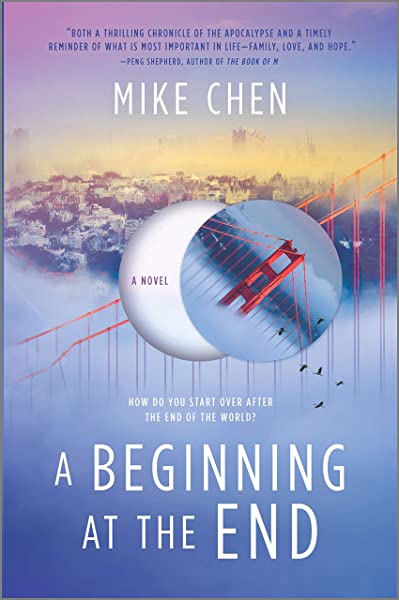
A Beginning at the End by Mike Chen
Genre: Science fiction, post-apocalyptic fiction
Content Warnings: None
Book Length: 391 pages
A Beginning at the End, by Mike Chen, is a dystopian novel about a post-apocalyptic world, and how people struggle to return to a sense of normality after a tragedy. Six years after a global pandemic, nearly the entire human population has been wiped out, and all forms of government, technology, faith and religion have fallen. The few who have survived are riddled with fear and refuse to re-enter society. The world as everyone knew it was turned upside-down, yet four people from completely different walks of life choose not to dwell in the darkness, and begin rebuilding their neighborhood in hopes of forging a path towards better days. People shed their past identities and put aside their differences in an attempt to restore society to what it once was, pushing themselves away from their comfort zones. Chen’s novel reminds us to find hope during uncertain times, and that there is always light at the end of the tunnel. A Beginning at the End is easy to read, and you won’t be able to put it down.












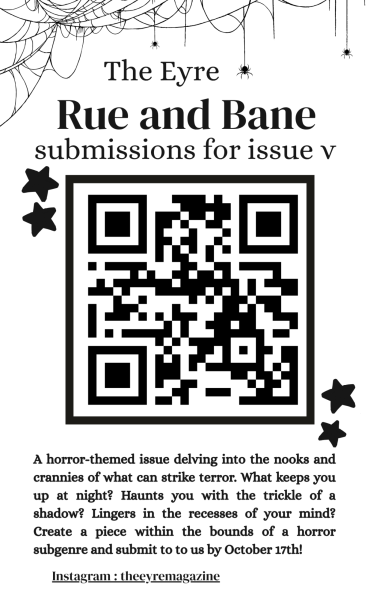


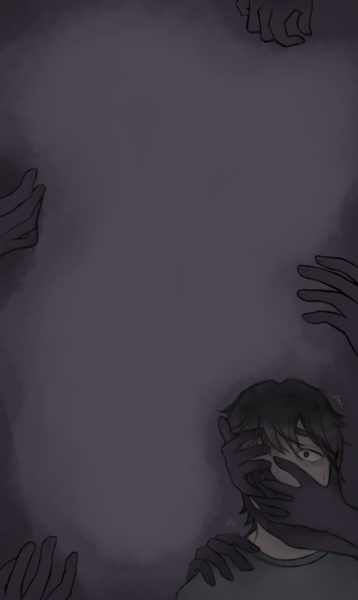
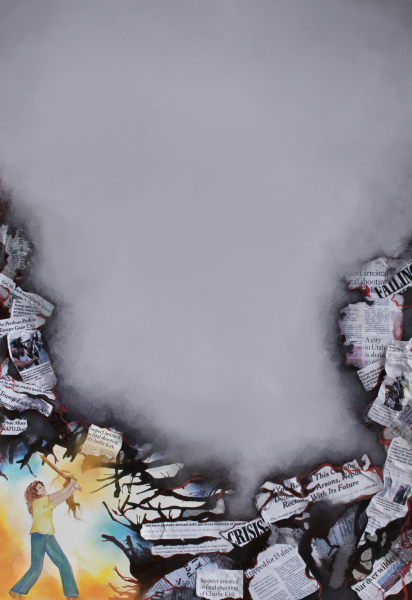
![Jolie Baylon (12), Stella Phelan (12), Danica Reed (11), and Julianne Diaz (11) [left to right] stunt with clinic participants at halftime, Sept. 5. Sixty elementary- and middle-schoolers performed.](https://wvnexus.org/wp-content/uploads/2025/09/IMG_1948-400x600.png)